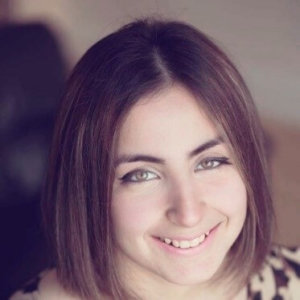Sara Elkashef – Bourse de recherche 2019
Dr. Sara Elkashef, Postdoctoral Fellow, University Health Network
Project Title: « Radiation-immunotherapy combination treatment for glioblastoma: improving the therapeutic ratio »
Generously funded by the Richard Motyka Brain Tumour Research Fellowship
Project Summary – December 2019:
Glioblastoma is the most common brain cancer, accounting for 52 percent of all primary brain tumours. Despite recent advances in therapies, glioblastoma remains essentially incurable, and new therapeutic approaches are urgently needed. Immunotherapy (IO) is emerging as a new class of cancer treatment and its efficacy is enhanced in several cancers (e.g. melanoma) when combined with radiotherapy (RT). Our group and several others recently discovered a molecular basis for the synergy between radiotherapy and immunotherapy. This involved molecular pathways that are normally involved in responding to viral infection. Importantly, deficiencies in these same pathways can cause development of Aicardi-Goutières syndrome (AGS); a rare childhood inflammatory disorder that most typically affects the brain. This suggests that the same pathways involved in radiotherapy-immunotherapy combinations may also be involved in neurotoxicity. The research described in this proposal will test radiotherapy responses in different cell types of the normal brain and in glioblastoma. Our goal is to determine whether new treatment combinations would be effective in glioblastoma and the biological basis for this response. Equally important we hope to find ways to limit normal tissue damage from radiotherapy that can lead to considerable side-effects that impact patient quality of life.
Read what being awarded this Fellowship means to Sara:
 Being awarded the Richard Motyka Brain Tumour Research Fellowship will allow me to truly cultivate my ideas and hypotheses while receiving the mentorship and guidance needed to become a principal investigator. Receiving this fellowship will not only strengthen my curriculum vitae, but also enhances my path towards an independent position, which will help me realize my vision of using a deep understanding of biology to create innovative, therapeutic modalities targeting brain cancer.
Being awarded the Richard Motyka Brain Tumour Research Fellowship will allow me to truly cultivate my ideas and hypotheses while receiving the mentorship and guidance needed to become a principal investigator. Receiving this fellowship will not only strengthen my curriculum vitae, but also enhances my path towards an independent position, which will help me realize my vision of using a deep understanding of biology to create innovative, therapeutic modalities targeting brain cancer.
A particular incentive to leading my own group in an academic setting, is to train the next generation of scientists, which would give my work an impact beyond what I can achieve as an individual.
I would like to thank the Motyka family for their generous donation and for making this possible.